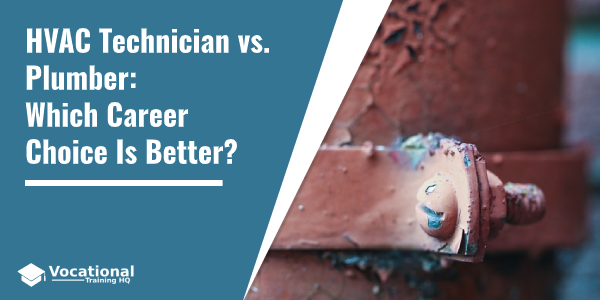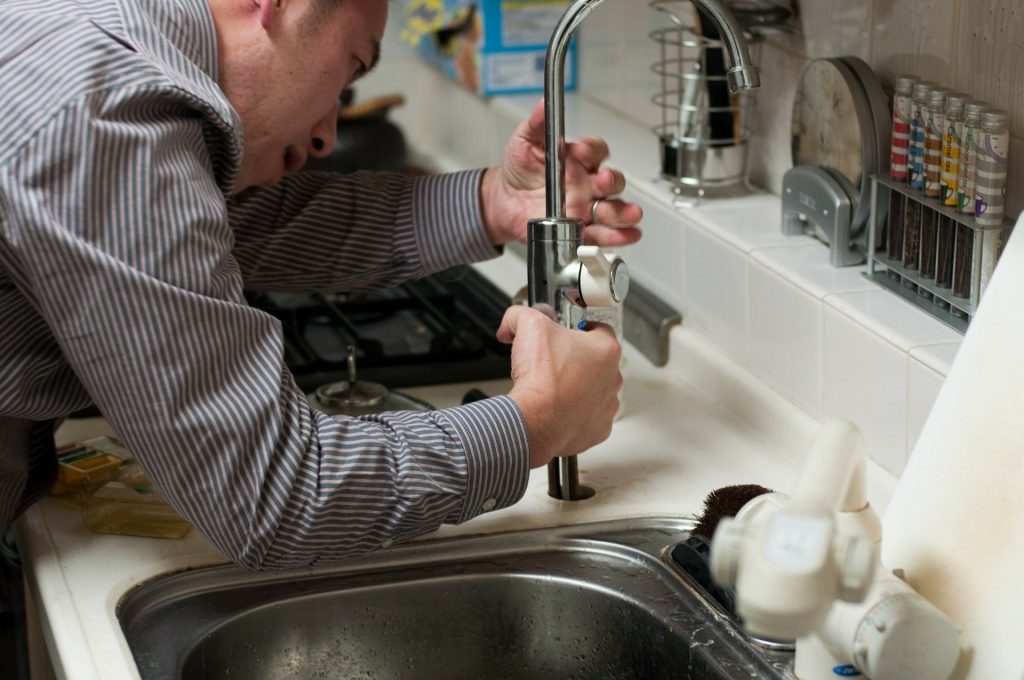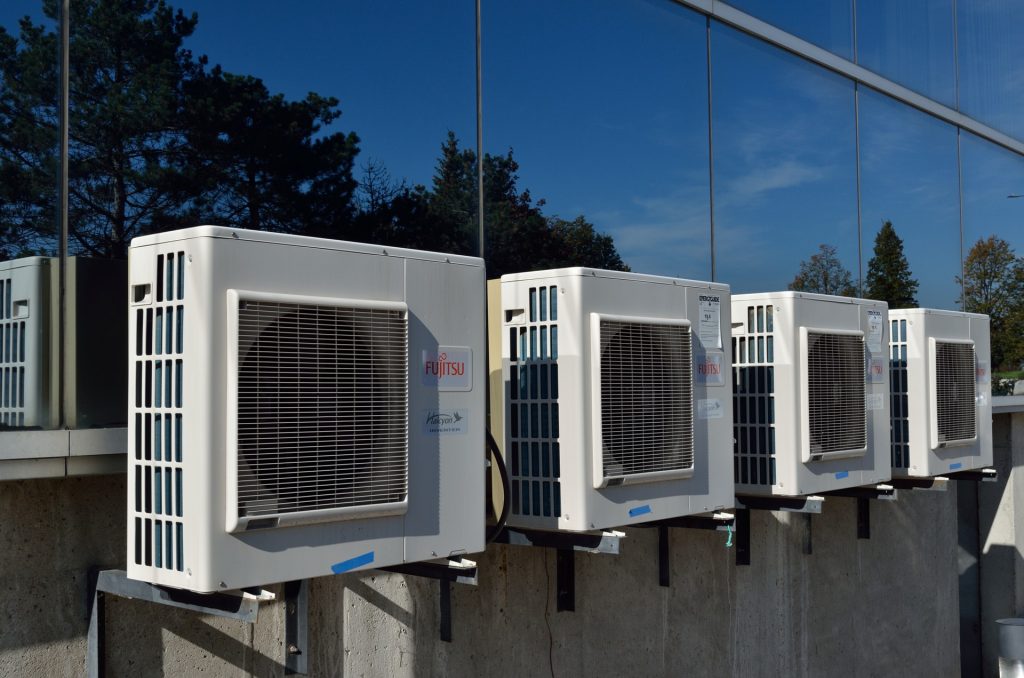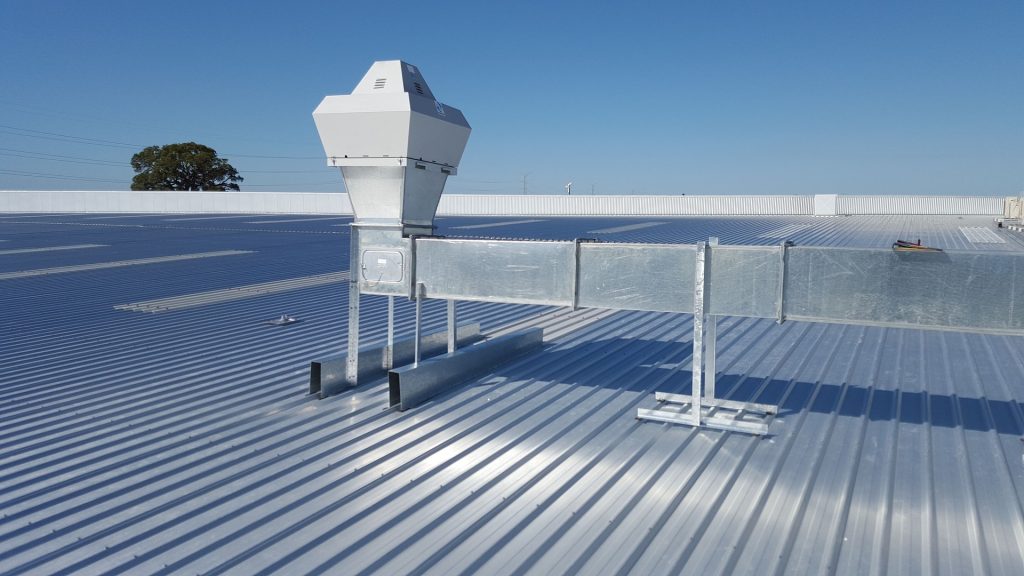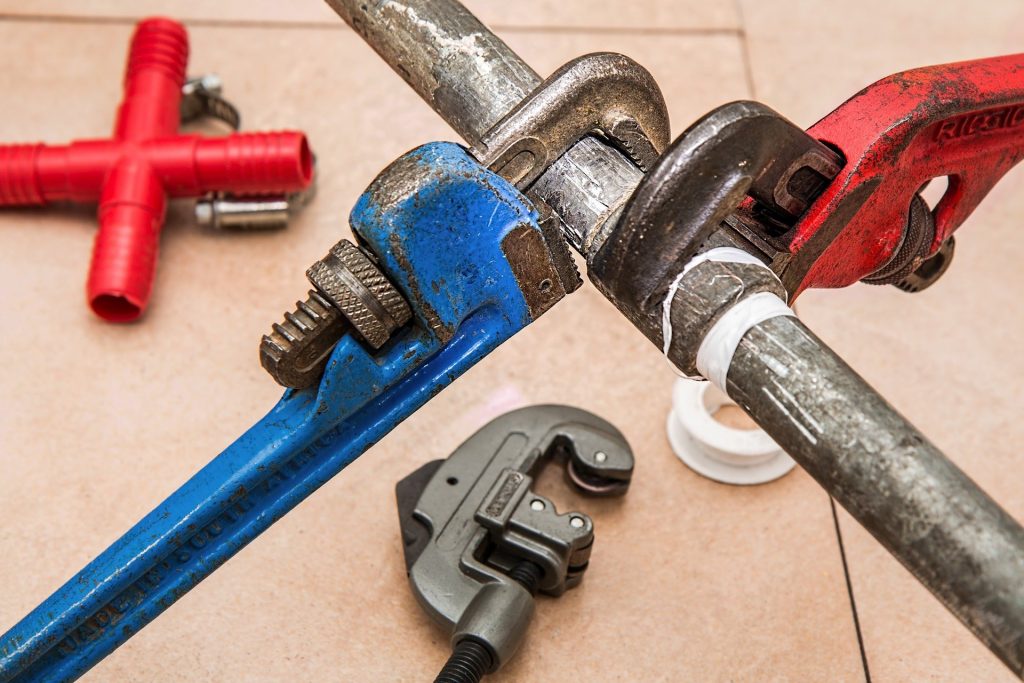The main difference between an HVAC technician and a plumber is their job description.
Plumbers work with pipes, while HVAC specialists work with air conditions and heating systems.
There are many other aspects that set these two professions apart and in this article, we will dig a bit deeper into the differences between an HVAC and a plumbing career.
Article Table of Contents
Job Description Differences
Plumber Job Description
Plumbers are trained to work on fixtures and appliances that connect a home or a business to a water system.
Their daily routine may include installing sinks, bathtubs, and other appliances, and inspecting these systems to ensure that they are in compliance with local rules and regulations.
A plumber may be called to repair leaky pipes, to replace faucets, or to clean drains but he may also be the one who designs and installs piping systems in new buildings.
HVAC Specialist Job Description
HVAC technicians handle issues related to heating or cooling systems in homes and commercial buildings.
They may install new systems, perform maintenance work, and make repairs when needed.
HVAC Technicians need special training and a thorough understanding of the intricate parts that are included in HVAC systems.
HVAC specialists may also be trained in refrigeration systems.
The types of jobs an HVAC specialist responds to include: duct cleaning, new heater or cooling systems installation, heat pump repair, and energy usage analysis.
Career Path Differences
Plumber Career Path
Plumbers usually need to complete an apprenticeship that can last anywhere between 2 and 5 years.
Although this may sound like a really long time, apprentices receive a salary during this training period.
Apprenticeships are designed to help students learn, hands-on, the skills needed for practicing this profession.
After finishing training and meeting the experience requirements, graduates are ready to sit for the licensing exam.
If they obtain a passing score, they are ready to work as journeyman plumbers.
You can also study to become a plumber online.
HVAC Specialist Career Path
HVAC technicians also need to complete postsecondary training or an apprenticeship.
Many start their training at a trade school or community college that offers certificate programs in heating, air conditioning, and refrigeration.
These programs last between six months and two years and can lead to a certificate or an associate’s degree.
Newly employed technicians usually work alongside experienced workers.
They start by performing simple tasks and move to more complex tasks after gaining experience.
Some HVAC technicians receive their training through an apprenticeship that usually lasts between 3 and 5 years and covers topics such as blueprint reading, tools usage, and safety practices.
All HVAC technicians who work with refrigeration systems are required to have a certificate in proper refrigerant handling, a credential offered by the U.S. Environment Protection Agency.
Some states require all HVAC technicians to be licensed.
In conclusion, if you want to become a plumber or an HVAC technician is best to start by checking the HVAC licensing requirements that are applicable in your area.
There are online programs for HVAC technicians as well.
Job Prospects
Both professions are expected to see a rise in demand in the next few years.
The Bureau of Labor Statistics estimates that the demand for plumbers will grow by 4 percent between 2019 to 2029 with most job openings stemming from new construction and the need to repair existing systems at homes and businesses.
The same level of growth is projected for heating, air conditioning, and refrigeration mechanics.
Salary Comparison
According to the Bureau of Labor Statistics, the median annual wage for plumbers was $55,160 as of May 2019.
This means that half of all workers in this profession earned less than this amount while half earned more.
According to the same agency, the median annual wage for HVAC mechanics and installers was $48,730.
Although HVAC technicians earn, on average, slightly less than plumbers salaries for both professions vary depending on a wide range of factors, and if you’re a hard-working individual who keeps up with the latest technologies and techniques you can make a pretty decent living, regardless of the career path you choose.
In conclusion, if you’re contemplating the idea of starting a career in trades, the plumbing and HVAC sectors can be a good choice for you.
Regardless of the path you choose, you should first research the requirements that govern this profession in your area and gain the training needed for the job.
Read the full guide: How to Become an HVAC Technician
